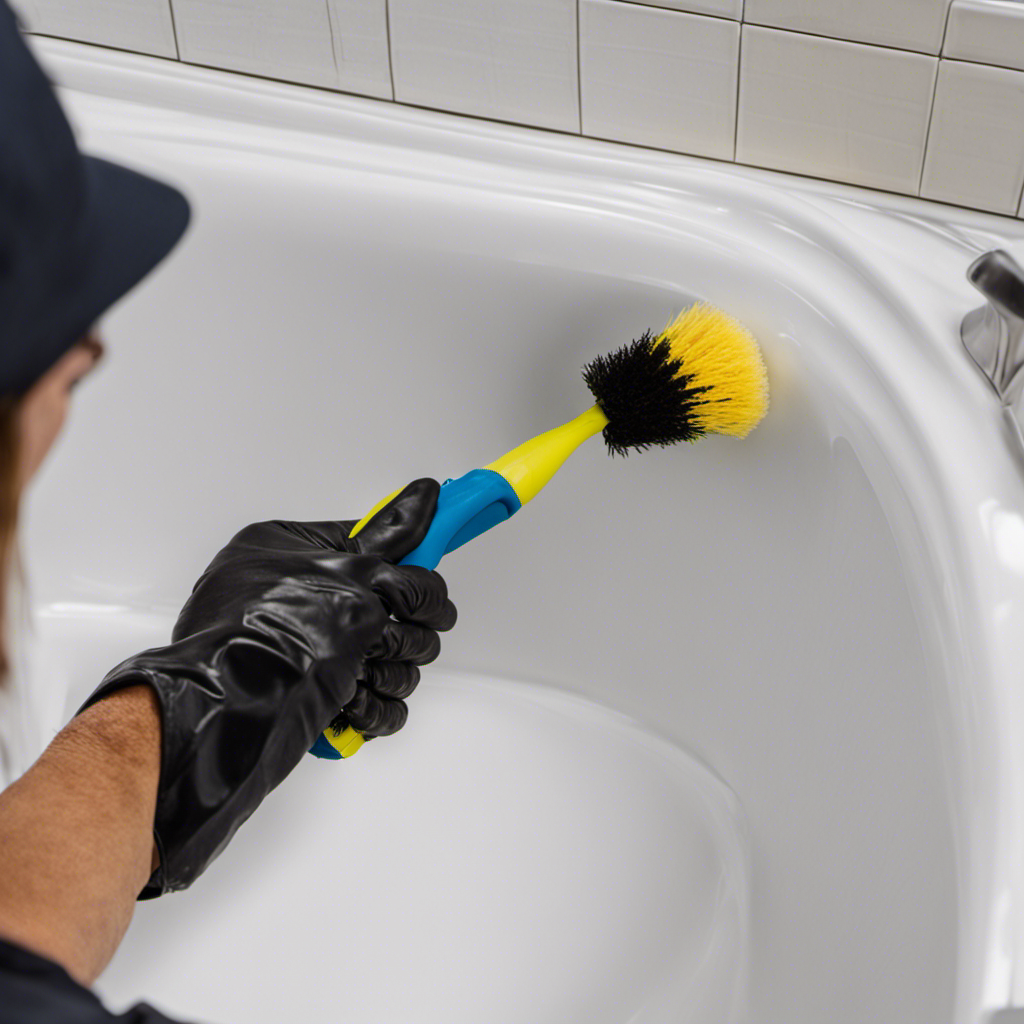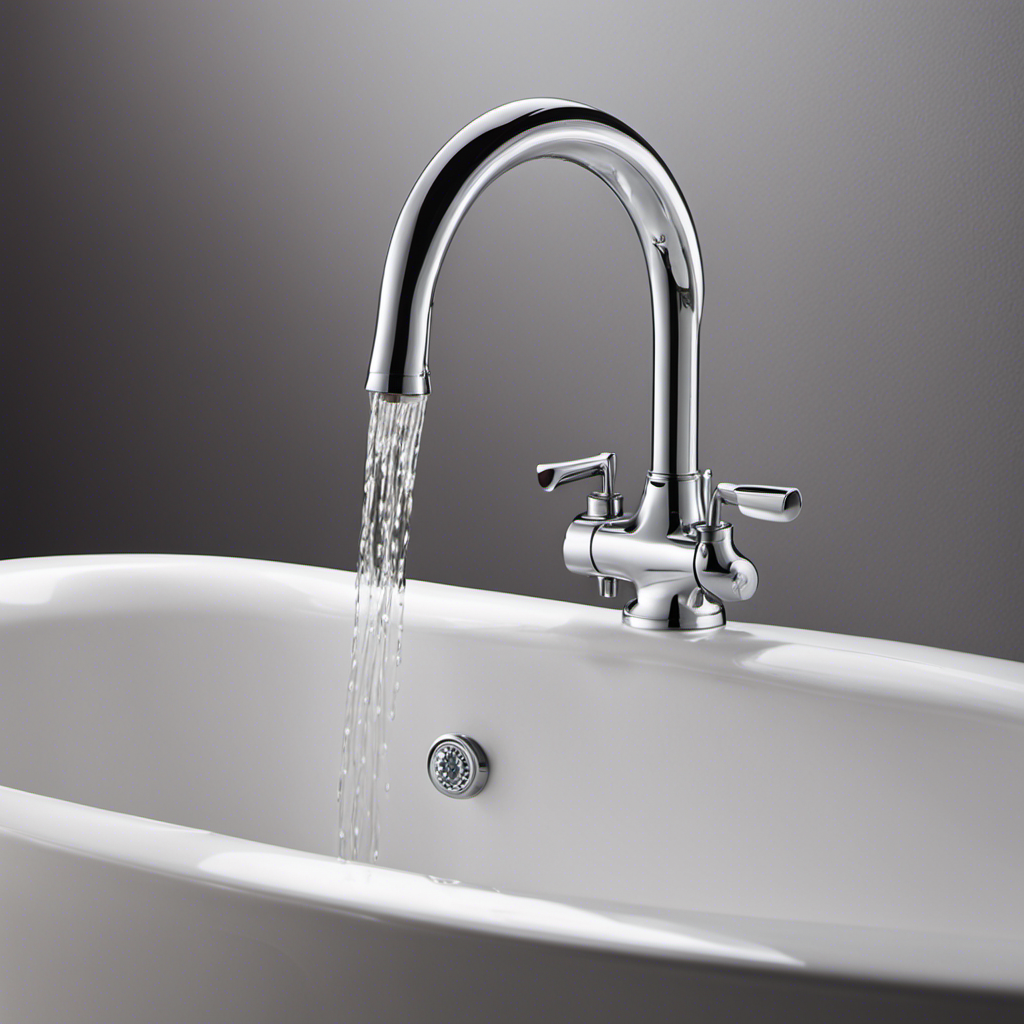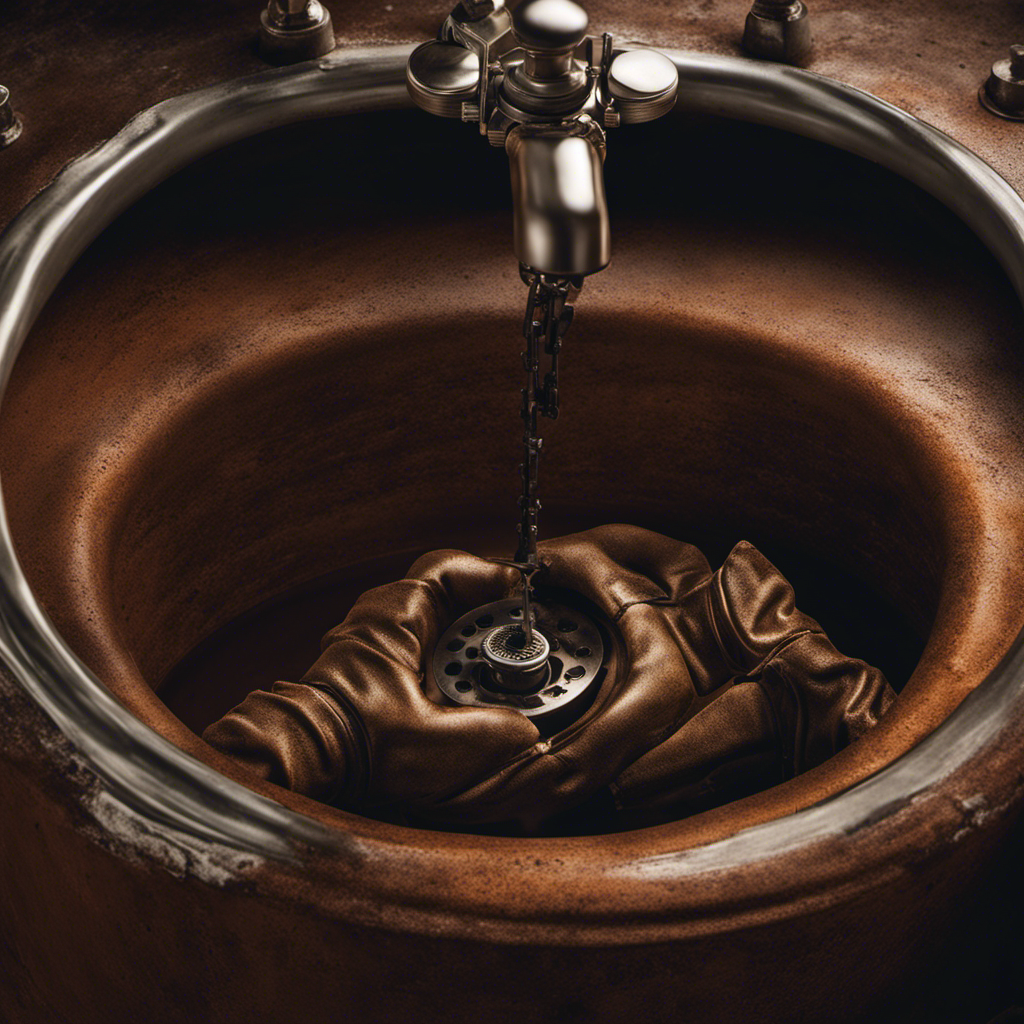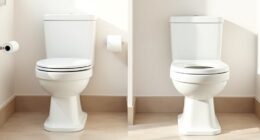Are you tired of guessing how often to use RV toilet chemicals? We’ve got you covered.
In this article, we’ll break down the importance of these chemicals and provide you with the data-driven facts you need. From different types of chemicals to factors to consider when determining usage frequency, we’ll help you master the art of keeping your RV toilet clean and fresh.
So, sit back, relax, and let us guide you through the world of RV toilet chemicals.
Key Takeaways
- Follow the manufacturer’s instructions for frequency of use
- Use RV toilet chemicals with each toilet use and before long trips
- Regularly maintain and clean the toilet system
- Adjust the frequency of using RV toilet chemicals based on usage and tank capacity
The Importance of RV Toilet Chemicals
We strongly recommend using RV toilet chemicals on a regular basis to ensure proper sanitation and odor control. Many RV owners may be unaware of the benefits of using these chemicals and may hold common misconceptions about their effectiveness.
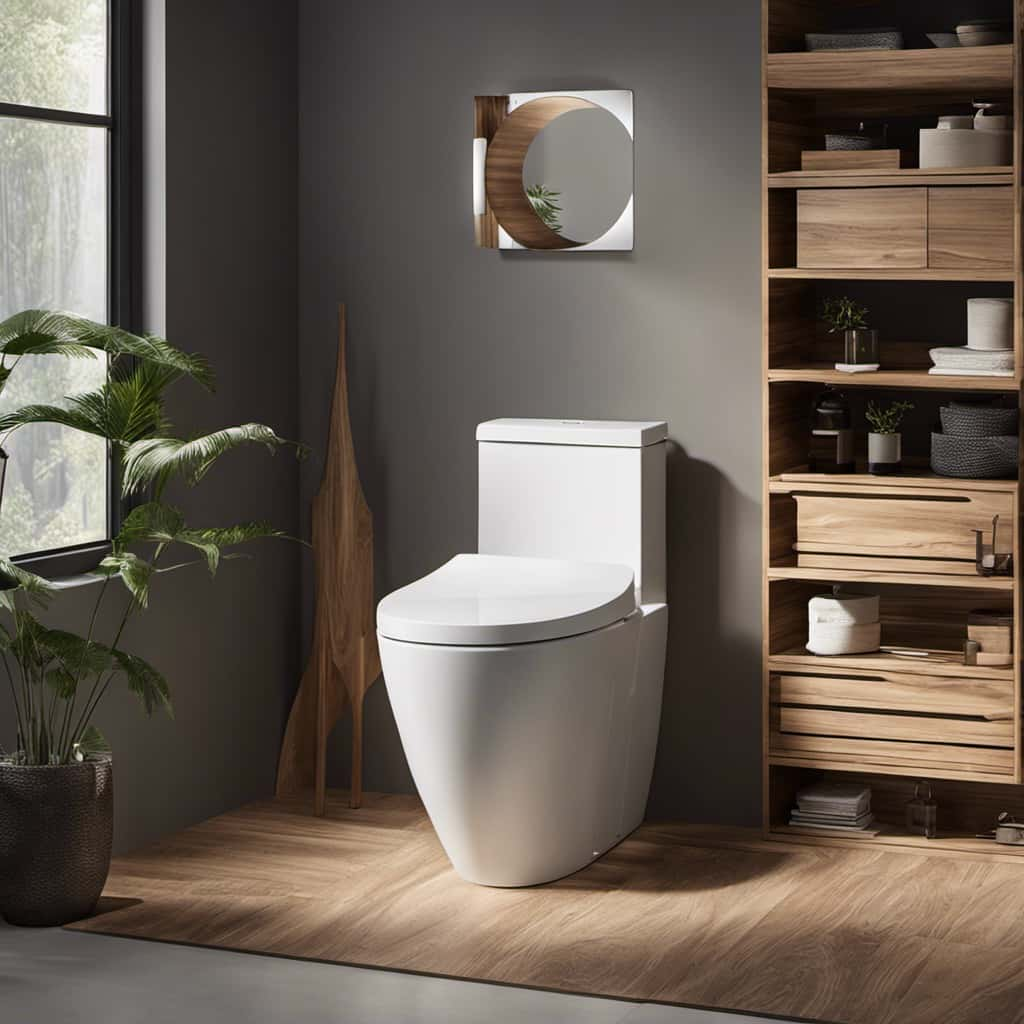
RV toilet chemicals play a crucial role in breaking down waste, preventing clogs, and reducing odors in your RV’s toilet system. By using these chemicals, you can maintain a clean and hygienic environment, preventing the growth of harmful bacteria and minimizing the risk of infections.
Additionally, RV toilet chemicals help to prolong the lifespan of your RV’s plumbing system by preventing corrosion and damage caused by waste build-up. It’s important to note that using high-quality, biodegradable RV toilet chemicals is essential to minimize environmental impact while still enjoying the benefits they provide.
Different Types of RV Toilet Chemicals
To understand the different types of RV toilet chemicals, let’s explore their various compositions and functionalities. When it comes to RV toilet chemicals, there are two main categories: liquid and powder. Each type has its own set of benefits and considerations.
Liquid RV toilet chemicals are convenient and easy to use. They come in pre-mixed solutions, making it simple to pour directly into the toilet. Liquid chemicals are also effective at breaking down waste and controlling odors.

On the other hand, powder RV toilet chemicals often require mixing with water before use. They’re known for their cost-effectiveness and long-lasting properties. Powder chemicals also have the advantage of being lightweight and easy to store.
When choosing between liquid and powder RV toilet chemicals, consider factors such as personal preference, convenience, and environmental impact. For eco-conscious RV owners, there are eco-friendly options available that offer the benefits of effective waste breakdown and odor control without harming the environment.
Now that we’ve explored the different types of RV toilet chemicals, let’s move on to the next section, where we’ll discuss the factors to consider when determining usage frequency.
Factors to Consider When Determining Usage Frequency
Considering various factors can help determine how often to use RV toilet chemicals.
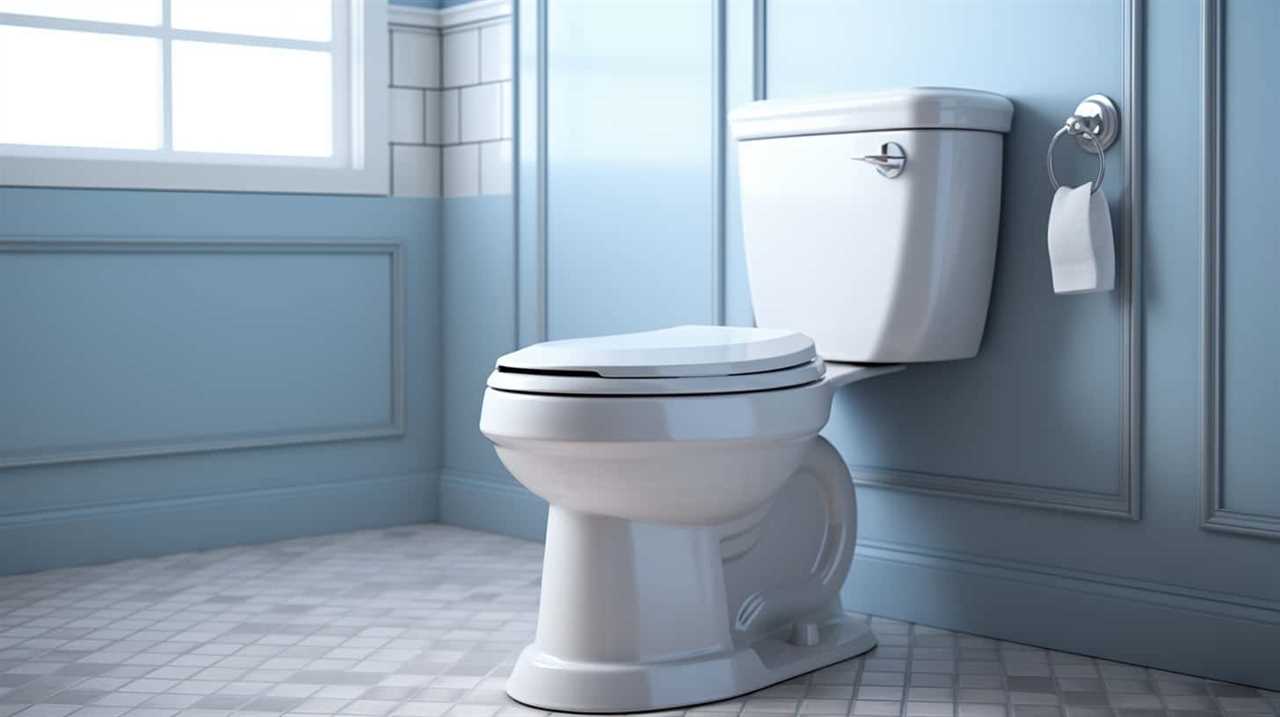
There are several factors to consider when deciding on the frequency of usage. Firstly, the number of people using the RV toilet is an important consideration. More frequent usage by a larger number of individuals may require more frequent application of chemicals to maintain optimal sanitation levels.
Secondly, the climate and temperature in which the RV is being used can impact the rate of waste decomposition and odors. Warmer climates may require more frequent chemical treatments to combat odors and break down waste effectively.
Lastly, the type of RV toilet system being used should also be taken into account. Different systems may have varying requirements for chemical usage.
It’s essential to weigh the benefits and drawbacks of each factor to determine the appropriate frequency of RV toilet chemical usage.
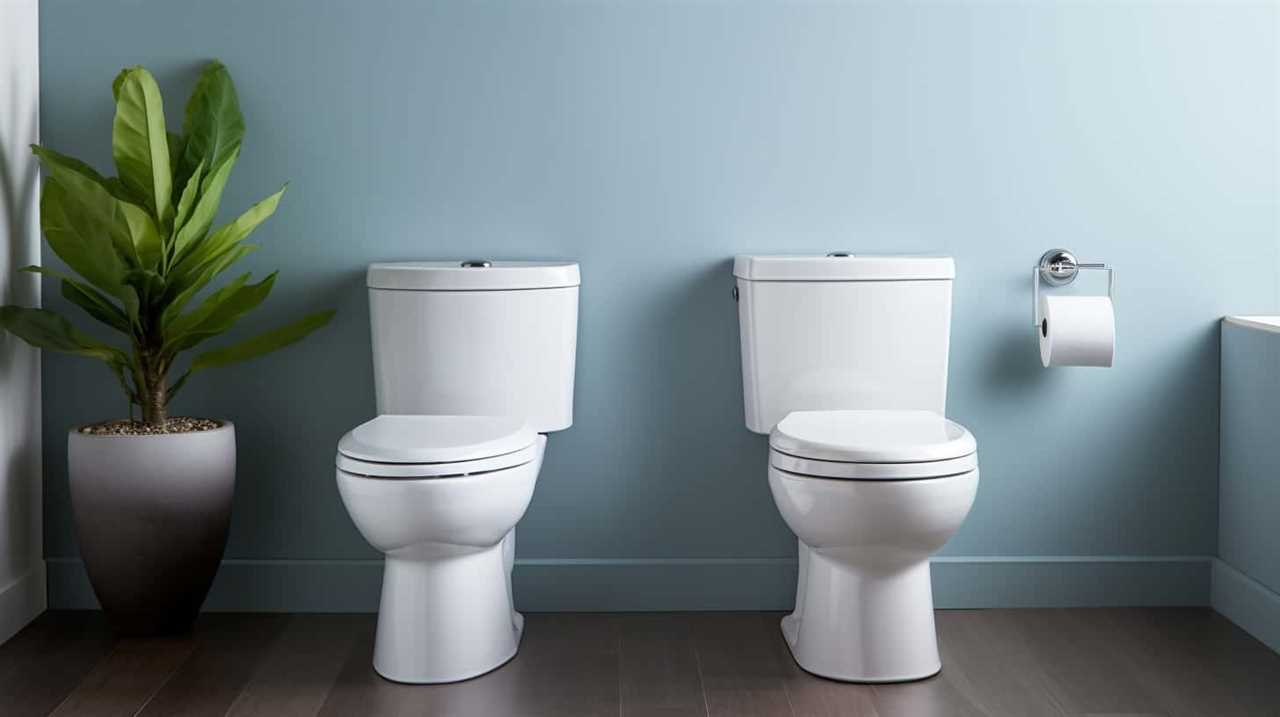
Recommended Frequency for Using RV Toilet Chemicals
When determining the recommended frequency for using RV toilet chemicals, it’s important to regularly apply them to maintain optimal sanitation levels.
By using RV toilet chemicals at the appropriate frequency, you can ensure that your RV’s toilet remains clean and free from odors. The benefits of using RV toilet chemicals are numerous.
Firstly, they help break down waste and toilet paper, preventing clogs and blockages in the plumbing system. Additionally, these chemicals control odors, leaving your RV smelling fresh and clean.
However, it’s important to avoid common mistakes when using RV toilet chemicals. One common mistake is using too much or too little chemical, which can lead to ineffective waste breakdown or excessive chemical residue.
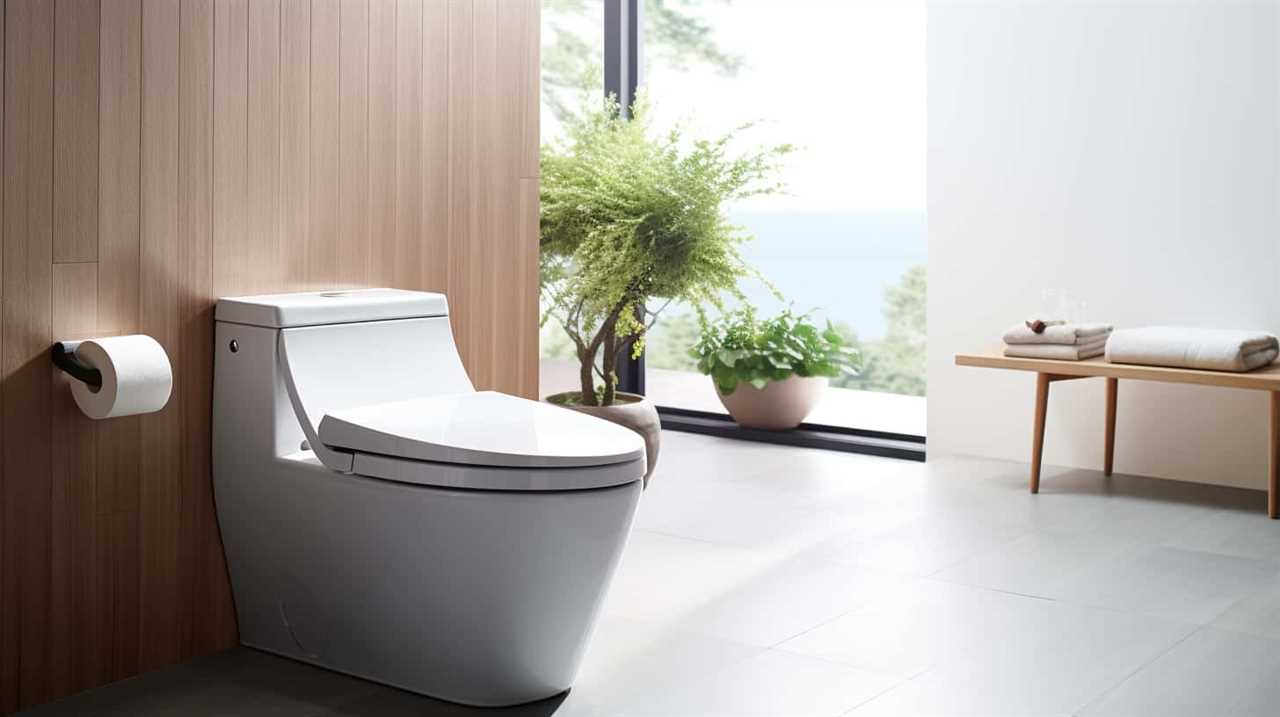
It’s also crucial to follow the manufacturer’s instructions and not mix different types of chemicals, as this may result in undesirable chemical reactions.
Tips for Maximizing the Effectiveness of RV Toilet Chemicals
Let’s explore some tips to maximize the effectiveness of RV toilet chemicals.
- Use the recommended amount: It’s important to follow the manufacturer’s instructions and use the appropriate amount of RV toilet chemicals. Using too little may not effectively control odors, while using too much can lead to clogs and damage to your RV’s plumbing system.
- Maintain a regular cleaning schedule: Regularly cleaning your RV toilet, including the bowl and holding tank, will help prevent the buildup of waste and bacteria. This won’t only maximize odor control but also reduce the risk of clogs.
- Properly dispose of waste: When emptying your RV’s holding tank, make sure to dispose of the waste in designated dumping stations. Avoid dumping waste in improper locations, as this can cause environmental damage and lead to clogs in sewer systems.
Frequently Asked Questions
Can I Use Regular Household Chemicals in My RV Toilet Instead of RV-Specific Toilet Chemicals?
We do not recommend using regular household chemicals as an alternative to RV-specific toilet chemicals. There are potential risks involved, such as damage to the toilet system and harm to the environment.
How Do RV Toilet Chemicals Help Control Odors in the Holding Tank?
Using RV toilet chemicals is crucial for controlling odors in the holding tank. They work by breaking down waste, preventing the growth of odor-causing bacteria. Different types of chemicals, like enzyme-based or formaldehyde-based, cater to specific needs.

Can I Use Too Much RV Toilet Chemical in My Holding Tank?
Using too much RV toilet chemical can cause issues, such as an overly strong odor or damage to the tank. However, it is necessary to use RV toilet chemicals every time to control odors and maintain the cleanliness of the holding tank.
Are There Any Environmentally-Friendly Options for RV Toilet Chemicals?
Eco-friendly alternatives for RV toilet chemicals exist, but there are pros and cons to using natural ingredients. While they may be better for the environment, they may not be as effective at eliminating odors and breaking down waste.
Can RV Toilet Chemicals Damage the Plumbing System in My RV?
RV toilet chemicals can potentially damage the plumbing system. However, there are alternatives available that are less harmful. It is important to consider the long-term impact and choose environmentally-friendly options to maintain the integrity of the RV’s plumbing.
Conclusion
In conclusion, the proper and regular use of RV toilet chemicals is crucial for maintaining a clean and odor-free bathroom environment.
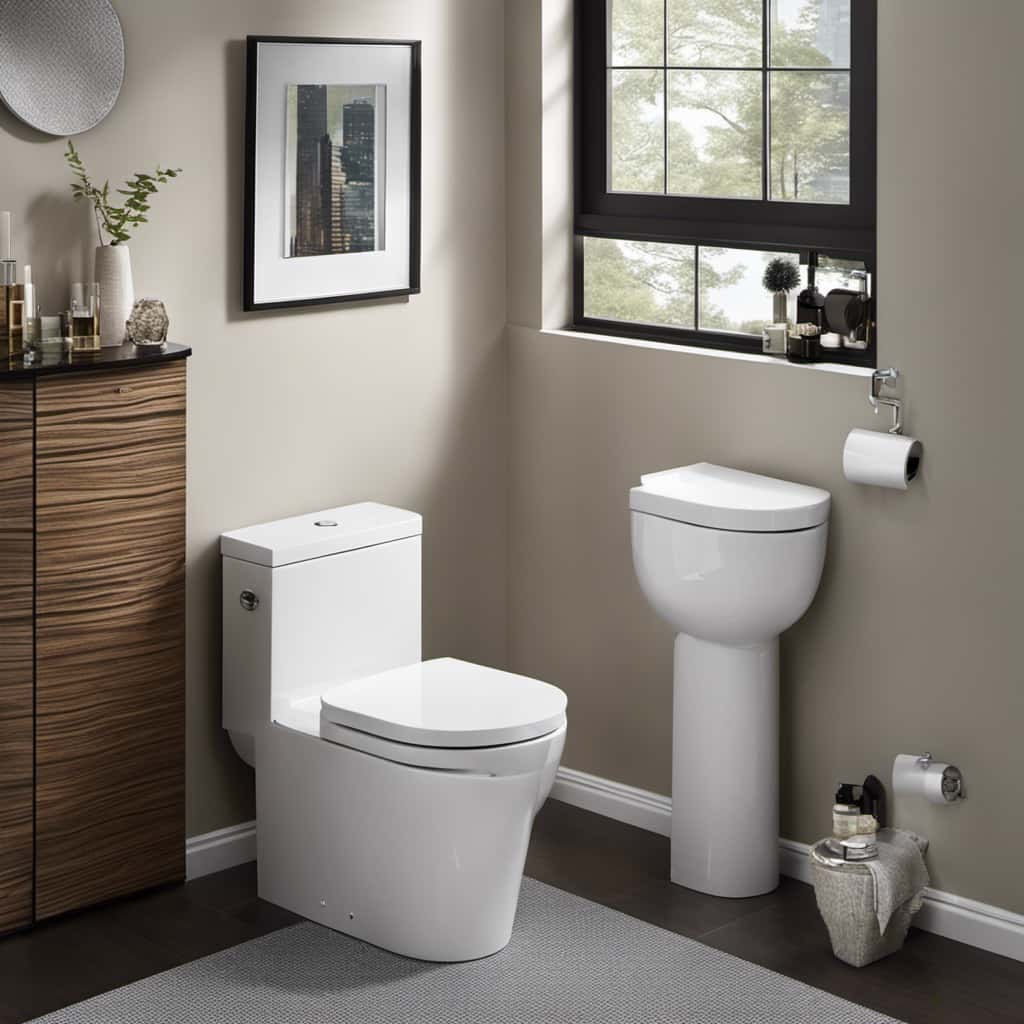
By considering factors such as waste volume and climate conditions, one can determine the frequency of usage.
Following the recommended guidelines and tips for maximizing effectiveness will ensure the best results.
So, don’t delay, diligently deploy these chemicals to delightfully diminish any distressing smells and enjoy a pleasant RV experience.



